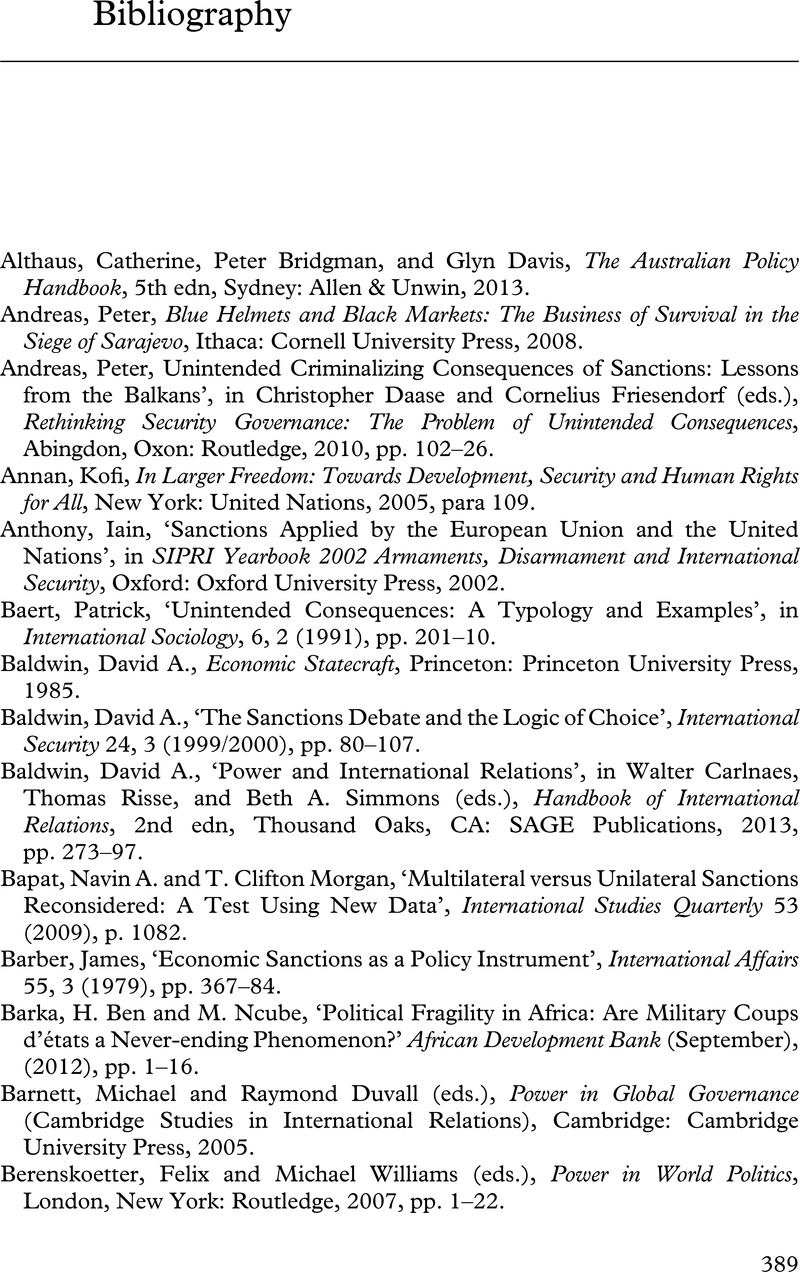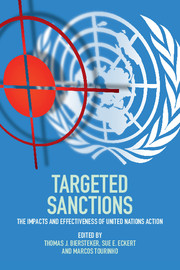Book contents
- Frontmatter
- Contents
- List of figures
- List of tables
- List of contributors
- List of abbreviations
- Introduction
- 1 Thinking about United Nations targeted sanctions
- 2 The purposes of targeted sanctions
- 3 Security Council dynamics and sanctions design
- 4 United Nations targeted sanctions and other policy tools: diplomacy, legal, use of force
- 5 The relationship between United Nations sanctions and regional sanctions regimes
- 6 Coordination of United Nations sanctions with other actors and instruments
- 7 Implementation of United Nations targeted sanctions
- 8 The impacts of United Nations targeted sanctions
- 9 The unintended consequences of United Nations targeted sanctions
- 10 The effectiveness of United Nations targeted sanctions
- 11 Institutional learning in targeting sanctions
- 12 Conclusion
- Appendix 1 List of cases and episodes
- Appendix 2 Sanctions effectiveness
- Appendix 3 TSC database codebook
- Appendix 4 Targeted Sanctions Consortium (TSC) participants
- Bibliography
- Index
- References
Bibliography
Published online by Cambridge University Press: 05 March 2016
- Frontmatter
- Contents
- List of figures
- List of tables
- List of contributors
- List of abbreviations
- Introduction
- 1 Thinking about United Nations targeted sanctions
- 2 The purposes of targeted sanctions
- 3 Security Council dynamics and sanctions design
- 4 United Nations targeted sanctions and other policy tools: diplomacy, legal, use of force
- 5 The relationship between United Nations sanctions and regional sanctions regimes
- 6 Coordination of United Nations sanctions with other actors and instruments
- 7 Implementation of United Nations targeted sanctions
- 8 The impacts of United Nations targeted sanctions
- 9 The unintended consequences of United Nations targeted sanctions
- 10 The effectiveness of United Nations targeted sanctions
- 11 Institutional learning in targeting sanctions
- 12 Conclusion
- Appendix 1 List of cases and episodes
- Appendix 2 Sanctions effectiveness
- Appendix 3 TSC database codebook
- Appendix 4 Targeted Sanctions Consortium (TSC) participants
- Bibliography
- Index
- References
Summary

- Type
- Chapter
- Information
- Targeted SanctionsThe Impacts and Effectiveness of United Nations Action, pp. 389 - 397Publisher: Cambridge University PressPrint publication year: 2016



